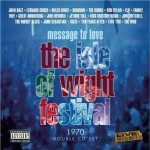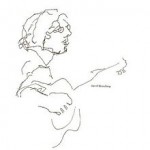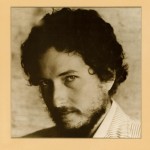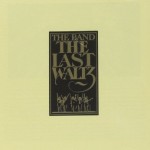Singer and stringed-instrument virtuoso David Bromberg has quite a musical resume. He got his start in the Greenwich Village folk music scene, accompanying artists like Tom Paxton, Richie Havens, and Jerry Jeff Walker. His breakthrough (and unbilled) solo performance at the Isle of Wight Music Festival led to a recording contract which produced much fine music in a range of styles during the 1970’s. During this time he was also an in-demand session musician, with contributions to recordings by Bob Dylan, Kris Kristofferson, Willie Nelson, Ringo Starr, The Eagles, and many, many more.
After a 22 year break from music, Bromberg returned to the stage and the studio. This interview was for a preview article for noozhawk.com for his 6/23/16 performance at the Lobero Theatre in Santa Barbara. It was done by phone on 5/27/16. For a review of a previous David Bromberg concert, click here. (L. Paul Mann photo)
Jeff Moehlis: What can people look forward to at the upcoming concert?
David Bromberg: A variety of good music. If you want to know what tunes, I have no idea. We never have setlists. We do what comes to mind. After every tune I have an idea of the kind of energy I want to use for the following one, and that’s how the sets get built.
JM: I’m guessing you have quite a list of songs that you could draw upon.
DB: Oh yeah, close to 90 right now.
JM: You took a break from performing, and in the last decade or so you’ve gotten back into it. Have you been enjoying your return to performing?
DB: Very much. The break was 22 years long, you know. I never said I was smart. I didn’t realize that what was going on was that I was burnt out. Had I realized that I would’ve taken a few months off. But I never believed that I could be burnt out, so the only thing I believed was, “I guess I’m not a musician.” So operating on that basis, I stopped for 22 years.
JM: When you stopped, did you think that was it?
DB: I thought I’d never play again. I thought I was done. You know, what happened was I was home and I wasn’t. At one point I was on the road for two years without being home for as long as two weeks. I realized that when I was home, I wasn’t practicing, I wasn’t writing, and I wasn’t jamming. There’s nothing of a musician there. So I thought it was clear that I wasn’t a musician. And I didn’t want to be one of these guys who drags his butt onto the stage and does a sorry imitation of something he loved. So I looked for another way to live my life. And I found one – I got interested in violins, I went to violin-making school. All of that was wonderful, and it’s something that I still enjoy.
JM: I read that you studied guitar with Reverend Gary Davis. What did you learn from him.
DB: Well, I learned how to play some of his songs. He was wonderful.
JM: Did you learn anything beyond music, say his outlook on life?
DB: You know, at the time I wasn’t open to learning stuff like that. It’s a shame, but it’s what happened.
JM: You go back to the legendary days of the Greenwich Village folk music scene. What are some of your memories from that time?
DB: Oh man, I have a lot of them. I don’t know where to start though.
JM: Did you cross paths with Bob Dylan at that point?
DB: Pretty much that was later.

JM: You performed at the Isle of Wight Music Festival, which was a bit of a breakthrough for you. Can you tell a bit about how that all played out? I understand that you weren’t originally on the program as a solo performer.
DB: I was there to accompany a singer called Rosalie Sorrels. This was what eventually became known as the last Isle of Wight Festival because the promoters lost their shirt. The reason that they lost their shirt was that parts of the audience early on broke down the fences, and came in for free. So there was no way for them to make a nickel. They wisely put the show on anyway. I don’t know what would’ve happened had they not.
I know it’s counter-intuitive but it’s also true that an audience that doesn’t pay is the hardest audience to satisfy. And this audience booed a lot of very fine performers off the stage. So I was there with a woman named Rosalie Sorrels, and Rosalie’s thing at the time was really geared to an intimate setting. I remember really clearly that we followed Kris Kristofferson and his band. They were given a really rough time, but they finished their set. Partway through Rosalie’s set they started to get really restless. It was very possible that we weren’t going to finish. Rosalie, when she saw the crowd was getting a little difficult, asked me to do one of my tunes, which she had never done before and never did since, you know, when I was accompanying her. I don’t mind that she never did – I was there to be an accompanist. But she asked me if I would do one of my songs. The crowd loved it! And they allowed her to complete her set.
So when we got off, the promoters approached me and asked me if I would come back and perform some more at dusk, at 6:00. At the time, I didn’t realize it, but that’s the very best time to perform in an outdoor festival. So I came back at dusk and I asked them how many songs they wanted me to do, and they said, “Do an hour.” I don’t know that I’d ever done an hour before. I don’t think that I had, but I did, and I think I got two or three encores. But this was on Wednesday night. There was no press there. However, Columbia was recording it. Teo Macero was the guy in charge of Columbia’s recording. He recommended they sign me, so they did. And, you know, I never spoke to Teo Macero, never in my life. I wish I had, because I would’ve loved to have thanked him.
JM: Did you stick around for the rest of the festival?
DB: I went back and heard quite a bit of it.
JM: When I look at your bio, it’s amazing to see all the musicians that you’ve played with and recorded with. Are there any that particularly stand out to you?
DB: Of course it was great to play with Dylan. And with Ringo – I got to play on a couple of his records. That was exciting. I played on Shotgun Willie with Willie Nelson – that was fun. Yeah, there were a lot of them that were really exciting and fun.

JM: One person that you played with, and wrote a song [“The Holdup”] with, was George Harrison. How did you meet him, and how did that song come together?
DB: It’s hard for me to remember how I met him. I might’ve met him through the man who was my manager at the time.
The way the song got written was definitely from the man who was my manager at the time. George and I were both invited to Thanksgiving dinner at his home. You know, we’re both guitar junkies, and the only guitar there was his daughter’s gut-string guitar, which was not a terrifically good one, but it was a guitar. So we passed that back and forth. We weren’t trying to write a song, but we did.

JM: What was it like working with Bob Dylan?
DB: Well, when you work with Bob you have to be ready. You don’t get a whole lot of whacks at anything, so you have to figure out what’s going on quickly. And I like that, so I had fun.
JM: Did you play with Dr. John at The Last Waltz concert?
DB: No, I didn’t. I says that on my website, and I keep forgetting to call them up to take that off.
JM: But you’ve played with Dr. John, right?
DB: Oh yeah, he’s a good friend, and I love him to pieces. But I didn’t get to play with him at The Last Waltz. I was there – I was backstage, but I didn’t get onstage.

JM: From the backstage perspective, what was that night like?
DB: Oh, it was fantastic. Great music. You know, some of the guys were great friends, and it was great to see people enjoying themselves. Although not everybody enjoyed themselves, but those that did really did.
JM: I’ll keep it positive – I won’t ask you who didn’t enjoy themselves.
DB: Yeah, let’s keep it positive.
JM: What advice would give to an aspiring musician?
DB: Move to either New York or Los Angeles. Because it takes a certain amount of time, no matter where you are, to become known. If you’re living in Cincinnati and you become known in Cincinnati, that fame will extend as far as the city limits of Cincinnati perhaps, but no further. If, on the other hand, you’re in New York or L.A., it will go further, because that’s where the music press is. Or Nashville – that’s the third one. That’s where the press is located. So fame in one of those cities will count as fame anywhere.
JM: You think that’s true even in the era of social media?
DB: I do. I could be wrong, but you asked me and that’s what I think.
JM: What are your plans, musical or otherwise, for the near future? Are you recording something new?
DB: Yeah, I’m just about finished with a new CD. I’m really happy with it, too. It’s going to be called The Blues, The Whole Blues, and Nothing But The Blues. It’s actually a blues album.
JM: It sounds like it [laughs]. Do you have any guest artists involved?
DB: Bill Payne [from Little Feat] played some keyboards. He’s a fantastic player, so that was big fun.
JM: You have a lot of your own songs, but you also do a lot of covers, such as “Mr. Bojangles”, which I’m guessing you still play at just about every show.
DB: I don’t do it all that often. I do love it.
JM: You were there from the start, right, when that song was first recorded by Jerry Jeff Walker?
DB: Yes, I played on the first recording of it.
JM: I also remember the cover song “Fifty Dollar Wig” [by Doug McLeod] that you played here at the Lobero. How do you choose what songs to cover?
DB: It can be anything. Sometimes it’s a lyric that I really like, sometimes it’s a melody that I really like, and sometimes it’s an attitude that I really like. If you like it you like it, for whatever reason.


Discussion
No comments for “Interview: David Bromberg”